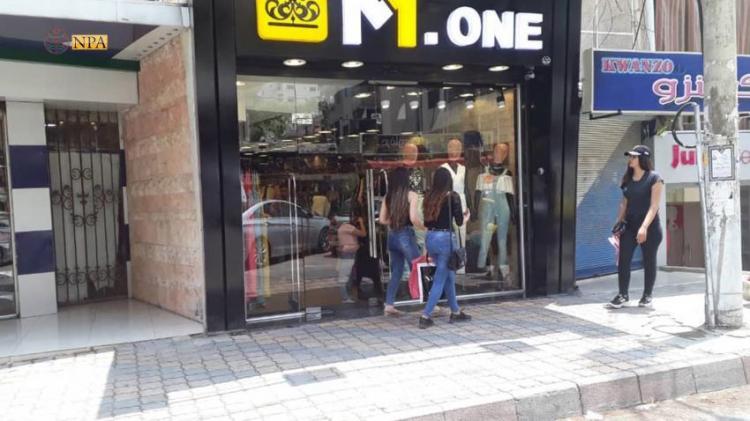Years of the ongoing war had a great impact on the industrial and agricultural sectors as well as the economic embargo on the Syrian regions, including Lattakia.
As the governorate suffers from volatile economic situation for successive times, fueled by the lack of supplies and the increase of demands of some materials in certain seasons, as well as mismanagement in many cases.
Ramzia Hashem 47 year old, a resident in Latakia, complained about the water crisis during summer time in most of city’s neighborhoods, and in the countryside followed by gas and fuel crises in winter time.
While “Om Baha’a”, a mother of three children, complained about fluctuating prices between the rise and fall while “citizens’ purchasing power is still below the expected level.”
“Abu Ahmad”, 52 years old employee, mentioned that citizens’ livelihood in a “temporary rest with anxiety” pointing out that “in a couple months, concerns and fears return to weigh heavily upon us, as we will be at the schools opening season, providing the house with necessary supplies and filling fuel for winter”, Abu Ahmad is bind to save money in anticipation of the two months he described as the worst of employees’ life, as he reduced daily needs to basic ones only, considering visiting restaurants as “luxuries” while he takes his family on a one-time trip per month because “he cannot afford trips expenses”, he explained that prices of some restaurants and cafes aren’t high, but the citizens’ income is very low compared to higher prices of materials, stressing that these reasons marginalize restaurants’ visiting out of “the accounts of limited income employees.”
While Ali Muhammad 24 yeas old, said that he failed to get a job in his field after graduating from the Faculty of Science in 2012 and was forced to work as a waiter in one of the city’s hotels, “visitors and vacationers believe that Latakia inhabitants are citizens of the first class”, explaining that the majority of Latakia inhabitants don’t know about luxurious restaurants and tourist resorts except their names and gates or as workers inside them, only high-class customers go there.
Marah, a 28-year-old graduate from the Faculty of Education since 2014, said that she’s looking forward to a job opportunity, pointing to her and her colleagues’ suffering as “giving up to work in the service sector or leaving their homes in the countryside to the capital in order to look for better opportunities.” She also talked about “the lack of job opportunities in Latakia unlike other governorates, except service work in cafes, restaurants and hotels, in addition to poor services such as the lack of access to the Internet in all of the areas, which cost some people overpriced at this time.”
She added that “overpriced transportation, lack of car service, catching a bus during time of congestion is so hard and one cannot depend on public transport to the countryside after 4 pm.”
Hala, a 22-year-old who works as a saleswoman at a clothing store, said to “North-Press”: “A certain class of adequate income owners are interested in purchase, prices are good for visitors, but they are too high for Lattakia citizens, where poverty prevalent among the citizens.”
“We also, as citizens, suffer from the sudden rise of dollar every now and then, which causes price instability because goods are linked to the dollar.” said Mustafa Khaled, (a pseudonym of a trader).
Despite all of these views, yet, people in Latakia are still suffering from the lack of solutions to raise their income or their living standards in a governorate where tourism is the main source of the income.
Lattakia – Alisa Ahmad – NPA

